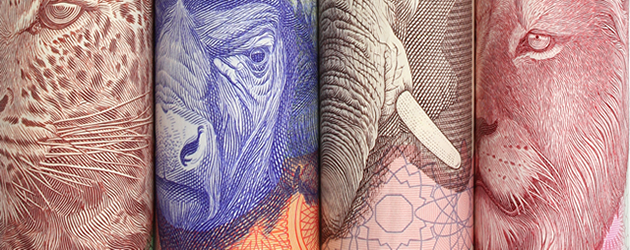 On Thursday the Pound Sterling to Rand exchange rate registered considerable declines as the South African Reserve Bank (SARB) opted to increase interest rates at its latest policy meeting.
On Thursday the Pound Sterling to Rand exchange rate registered considerable declines as the South African Reserve Bank (SARB) opted to increase interest rates at its latest policy meeting.
Although persistent strikes in South Africa’s most important sectors have significantly undermined the nation’s economic performance this year (making it likely that the country could be plunged into recession) rates have to be increased to counter inflation.
The rate of inflation came in above SARB’s target level of between 3% and 6% in both April and May.
It is currently forecast that inflation won’t drop to within the target band until quarter two of 2015.
Consequently, the SARB increased the benchmark interest rate by 25 basis points.
After the decision was announced the Rand rallied and SARB Governor Gill Marcus stated; ‘The Monetary Policy Committee (MPC) faces an increasingly difficult dilemma. Monetary policy should not be seen as the growth engine of the economy. The sources of the below-par growth performance are largely outside the realms of monetary policy.’
While the central bank remains fairly pessimistic regarding South Africa’s growth prospects in light of recent events, the rate hike did help the Rand rally against almost all of its rivals.
Pound to Rand exchange rate losses were a little limited as, despite some progress being made yesterday, the strike in South Africa’s metalworking sector continued.
The SA Finance Minister Nhlanhla Nene was recently quoted as saying; ‘We are concerned about the industrial relations situation. We hope we will be able to resolve this much more speedily.’
That being said, the Pound was also trending in a slightly softer position against several of its major currency counterparts amid leading comments regarding the potential detrimental impact the vote for Scottish independence could have on the Pound.
Several industry experts have recently indicated that the prospect of Scotland leaving the UK could significantly undermine support for Sterling and that the asset could shed as much as 10% in the run up to September’s vote.
On Friday data showed that Scottish nationalists are gaining ground, with support for remaining within the UK losing one percentage point. Support for independence climbed to 32%, an increase of 2 percentage points.
The result saw Tom Costley (head of TNS Scotland) comment; ‘We have consistently found a significant number of undecided voters among those who say they are certain to vote. This month that proportion of the certain-to-votes has fallen from 22% to 18% – evidence that people are now beginning to form an opinion as the polling date nears.’
However, in the view of one anti-independence supporter; ‘The closer we get to the vote itself the more people are thinking seriously about the consequences of separation for our Pound, pensions and public services.’
Next week movement in the Pound Sterling to Rand (GBP/ZAR) exchange rate could be caused by South Africa’s Inflation Rate data, due out on Wednesday July 23. UK news will also have an impact.
South African Rand (ZAR) Exchange Rates
[table width=”100%” colwidth=”50|50|50|50|50″ colalign=”left|left|left|left|left”]
Currency, ,Currency,Rate ,
Pound Sterling, ,South African Rand,18.2770,
,South African Rand,18.2770,
Euro, ,South African Rand,14.4585,
,South African Rand,14.4585,
US Dollar, ,South African Rand,10.6925,
,South African Rand,10.6925,
Australian Dollar, ,South African Rand,10.0362,
,South African Rand,10.0362,
New Zealand Dollar, ,South African Rand,9.2576,
,South African Rand,9.2576,
Canadian Dollar, ,South African Rand,9.9458,
,South African Rand,9.9458,
[/table]

Comments are closed.